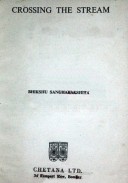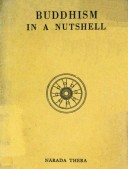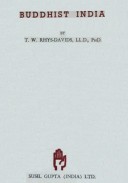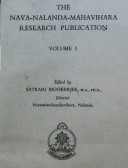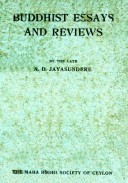Tìm Sách
Sách tiếng Anh-English >> The Buddhist Nirvana & Its Western Interpreters
Thông tin tra cứu
- Tên sách : The Buddhist Nirvana & Its Western Interpreters
- Tác giả : Guy Richard Welbon
- Dịch giả :
- Ngôn ngữ : Anh
- Số trang : 311
- Nhà xuất bản : The University of Chicago Press-USA
- Năm xuất bản : 1968
- Phân loại : Sách tiếng Anh-English
- MCB : 1210000003565
- OPAC :
- Tóm tắt :
PREFACE
I have a sinne of feare, that when I have spunne
My last thred, I shall perish on the shore…
John Donne, “A Hymne to God the Father”
According to the Buddhists, a man’s lot in this life is characterized by suffering (Sanskrit: duhkha; Pali: dukkha). The texts make it clear that suffering is linked to ignorance. Indeed, in the Buddhist view, suffering and ignorance are invariably associated. The one is never found without the other. Most poignant and consequential among the aspects of ignorance, say the Buddhists, is man’s failure to comprehend the basic truth about the phenomenal universe: no phenomenon is permanent—nothing abides. Ignorant of that truth, his proclivities (habitual thirst—trsnã, tanhã—for objects and experiences) nurtured accordingly, a man lives out of harmony with himself, his fellows, his world. He suffers.
The Buddha is the compassionate physician, his pronouncements prescriptions. The Way of the Buddha is, in a manner of speaking, the way from disease to health. But of what does “health” in the Buddhist sense consist? To be sure, it is deliverance (moksa, mokkha) from suffering. It is described variously, most commonly as nirvana (nibbãna).
Nirvãna is the absence—the destruction—of suffering (duhkhanirodha). It involves the eradication of ignorance through the acquisition of wisdom (sambodhi)—knowledge, conceived classically in India not merely as intellection but as operational and effective knowledge. Yet, more specifically, more positively than the absence of debilities, what is nirvãna? The ultimate aspiration of all Buddhists, their summum.
The heroic efforts and achievements of several generations of Western Buddhist scholars have made this book possible. That it is no better organized or written is my fault entirely. That no more interpretations of nirvãna have been included is a function of the time, space, and learning at my command. That no apodictically certain definition of nirvãna will be found on these pages is due to the nature of the idea itself.
A Note on Transliteration
In the following chapters passages dealing with technical terms will be quoted from a variety of works published over the past century and a half. Several transliteration conventions and typographical restrictions are evidenced in them. Often I have reproduced quoted material exactly as it appeared originally. Occasionally, however, it was considered advisable to regularize transliterations in accordance with contemporary scholarly practice. Hence, for example, nirvãna appears variously as “nirvãna,” “nirvana,” “nirvana,” “nirvana,” and even “nirvana.” Some inconsistency will also be encountered in the use or absence of italics and diacritical marks elsewhere. Generally, consistency has been sacrificed to ease of understanding whenever the two conflict.
For the pronunciation and accent of Old and Middle IndoAryan, the reader is referred to any one of several grammars or primers on Indian history and culture.
Guy Richard Welbon
The University of Rochester
CONTENTS
INTRODUCTION
- Earliest Scientific Buddhist Studies
- Eugène Bumouf and His Disciples
III. Friedrich Max Muller
- James D’Alwis and Robert Caesar Childers
- Interlude: Schopenhauer, Wagner, and Nietzsche on Nirvana
- Hermann Oldenberg and the Silent Buddha
VII. The Rhys Davidses
VIII. La Vallée Poussin and Stcherbatsky
CONCLUSION
SELECTED BIBLIOGRAPHY
INDEX
 Facebook
Facebook
 Google
Google
 Google+
Google+


